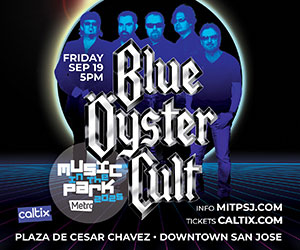When Jenny Reardon was 11 years old, her father, a former Jesuit priest, told her, “Jenny, genetics is the future.”
Encouraged by her intellectually curious dad, she dove head first into the sciences, winning a prize from the General Motors International Science and Engineering Fair at age 14. Reardon double-majored in molecular biology and politics at the University of Kansas, and she fell into genomic research, as many molecular biologists did in the 1990s, before going on to get her doctorate. Now a sociology professor at UCSC, Reardon has authored her second book, The Postgenomic Condition: Ethics, Justice and Knowledge After the Genome.
An open letter from Reardon and 66 others argued that Reich dangerously misrepresented the science of genomics. I talked to Reardon, who’s currently in Germany, about ethical issues around genetic studies and the field’s complicated relationship with race—stemming partly from a history of white supremacy and eugenics. Reardon says that many people of color have been understandably hesitant to participate in research.
“When scientists have been interested in studying African Americans, it’s usually not because they’re interested in improving their health,” she explains. “It’s usually because they’re a helpful research tool.”
GT: What was your experience as a genomics researcher?
JENNY REARDON: I researched DNA when it was still pouring hot liquid between two plates of glass. It was not a very high-tech operation. It’s helped people to take my work seriously. I knew the language of genetics.
What are you doing in Germany?
I’m here with a group that’s formed in Freiburg to address questions of human genetic variation research, and there’ve been some new developments in Germany. Ever since World War II, it’s been a taboo against using DNA to try to identify the population an unknown person comes from. If there’s a criminal investigation into a cold case in the U.S., police would want to look at the DNA and say what race or population the person who committed the crime came from. In Germany, this has been illegal since 1997, but now they’re talking about reversing it. There’s this group here made up of population geneticists, sociologists, and historians who’re addressing this issue.
There was a death of a medical student here in Freiburg, and it launched the whole push to try to overturn the law because it was a cold case. They didn’t have any clues, and they wanted to be able to say, “Oh, this person was from Turkey,” or “This person was from Syria.” There are a lot of concerns about it, because it seems like it’s part of the backlash against immigrants.
Is testing for a suspect’s race a bad thing?
One of the first issues we took on at the Science and Justice Research Center, which I direct, came from a couple of grad students in a forensic anthropology laboratory. They came to me and said, “Hey, we’ve got a problem. Our job is to take these missing bodies the state of California brings us—say for instance, people who cross the border, and they didn’t make it. But they don’t know who these people are. They’re missing people.”
And they said to me that the state of California requires we assign a race to these bodies, but the database that was developed to do this work was developed in the American South, and the bodies they used were of people who have a different background. It’s different parts of the world. They were saying, “When we do this, and we assign a race, we’re actually throwing ourselves off the trail because the database doesn’t represent the people that we see here.”
So that gives you some sense of the problems of it. You can only say something about the ancestral background of someone if you’ve sampled those people. The use of racial categories in genetics poses lots of serious issues. Historically, it’s not gone well when we’ve used race to define people genetically.
After researchers sequenced the human genome, President Clinton touted the project for showing how much all people have in common. Will genomics do more to heal racial divisions or make them worse?
We’ve yet to see the answer. If it’s not going to make things worse, it’s going to require very careful thought about how genetics is interpreted.
Is it possible there are racial differences on the genetic level? Should we even want to know?
We have to remember that human beings created the concept of race, and human beings will always be deciding what it means and how it will be used. Genomics isn’t going to solve any of those things. It could aggravate or make them worse, because the problem is that people will too easily put genomics on a pedestal and say, “Oh, the science tells us this,” and forget that human beings made genomics. Human beings made the categories that human beings use.
What can a company do with someone’s DNA data?
One of my chapters is about 23andme. 23andme—if you read the fine print, which I did just do recently—they ask you to spit in a tube, and ostensibly they’re selling you information about you. But really what they want to do—and what their business plan has always been—is use your data to create the largest DNA database in the world that will be of interest to pharmaceutical companies. That has always been its business plan—but it’s not, of course, what they lead with.
There are various levels of 23andme. You can just spit in a tube and they’ll send you your information. They then ask you if you will participate in 23andwe. And most people say ‘yes’ to this. They frame it as “Hey, you can help other people.” And most people want to help and do research. At that point 23andme can use your DNA for research purposes, although keeping people anonymous these days is technically difficult in genetics. They tell you that they won’t release your data to the FBI or CIA, unless requested. It is legally possible that, once you’ve spit in the tube, that the FBI or CIA can end up with that data should they decide that this was an issue of national security or something like that. 23andme is quickly becoming the largest DNA repository in the world, and the federal government would like to be able to identify every resident in the United States genetically.
The other thing people don’t understand is that once you spit in that tube and they send you back the information, they do things like tell you whether or not you’re at risk for breast cancer. You are then responsible for telling your insurance company, “Yes, I’m at risk for breast cancer,” or you’re committing fraud. The importance of that in the United States is we have a law that says you can’t discriminate against people based on the genetic information when it comes to healthcare, but you can on long-term care or life insurance. People should think long and hard before they spit in that tube.
UCSC researchers led the push to sequence the human genome as quickly as possible. If they had moved too slowly, the private firm Celera would have tried to patent the entire thing. How would this conversation be different if that had happened?
We know a little bit about this because of the BRCA1 and BRCA2 [genes], which are the breast cancer genes. In that case, a company did patent it and did beat out the public effort. It was these two researchers from Utah who ended up creating a company, and that lead to Myriad Genetics. And Myriad Genetics cornered the market on BRCA1 and 2 testing until 2013, when the Supreme Court said gene patents are unconstitutional. To get your BRCA1 and 2 data you had to pay Myriad $3,000. BRCA1 and 2 is one of the few examples right now where the genetic information is, you could argue, very medically relevant. It has medical value, and for many, many years, women had to pay a high price to get access to that. Now the whole market’s been opened by the overturning of the gene patents. All of these new companies have come into this space. 23andme is in this space. And you see all this competition. I don’t think it ever would have happened, that anyone would have let Celera patent the Human Genome. We probably would have seen the Supreme Court case come a lot earlier.
It’s in nobody’s interest to have genomic data under patent. Who was against Celera being under patent? The pharmaceutical companies. They did not want genomic data to be locked up under a patent because they weren’t going to make any money off genomic data. They were gonna make money off the things developed from genomic data.
Anything else I should be scared of in the future?
I hate that framing! We shouldn’t be afraid of genetics. We should be informed about genetics—not put it up on a pedestal. The whole reason I wrote this book was to make the field of genomics more accessible to people so they could join in the conversation and not treat it like it’s some high priesthood, that you have to have some fancy degree or that you need to be some kind of really smart scientist in order to understand it and to participate.



















